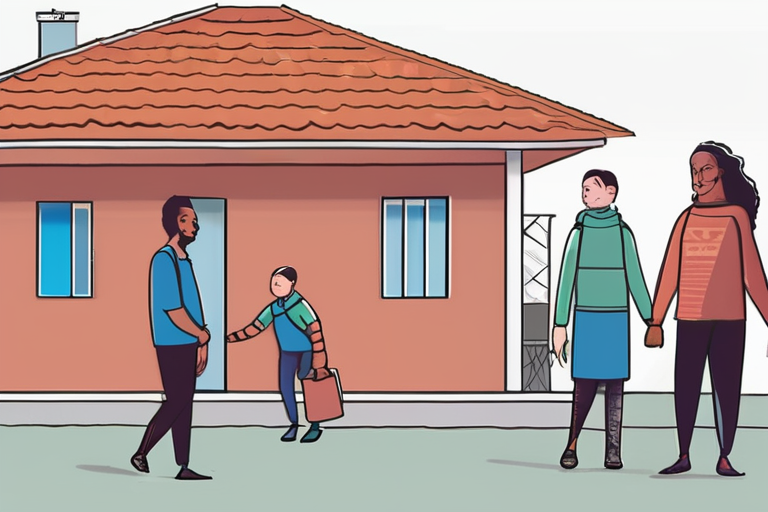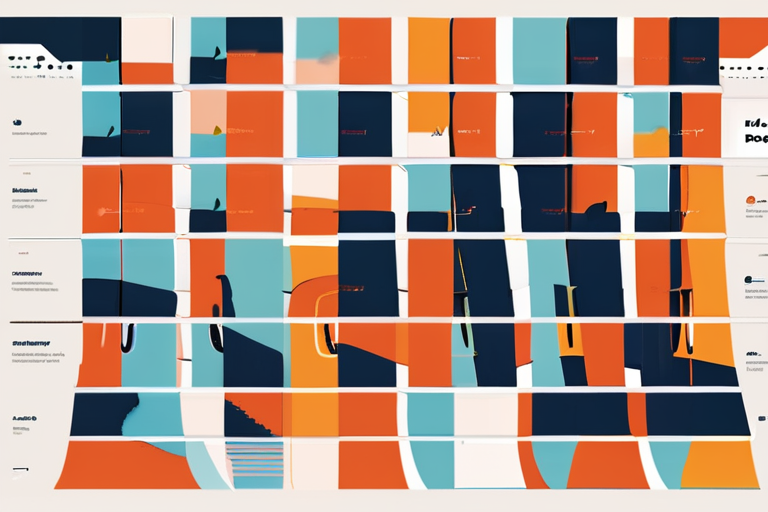Opening Scene:
As the train rumbled out of Ukraine's war-torn territory, a young family clutched their belongings and looked out at the uncertain future. Among them was Maria, a mother who had lost her home and livelihood in the conflict. Her husband, John, a skilled engineer, had managed to secure a spot on the evacuation train, but they knew that finding stability would be a long shot.
Context and Background:
The world is facing an unprecedented refugee crisis, with millions displaced due to conflict, persecution, or natural disasters. In this chaotic landscape, one approach stands out as particularly effective in helping refugees thrive: hosting them in local families' homes. Research has shown that refugees hosted by local families integrate better into their new country than those living in other types of accommodation.
Development of the Story with Details:
A study published in Nature Human Behaviour found that refugees who were hosted by local families reported higher levels of well-being, social connections, and economic stability compared to those living in shelters or apartments. This is not surprising, given that hosting a refugee family allows for a more personalized and supportive environment.
For instance, Maria and her husband John were welcomed into the home of a kind-hearted couple, Sarah and Michael, who had lost their own child years ago. They saw an opportunity to give back and provide a loving space for the young family. As they settled in, Maria began to learn English, find employment, and rebuild her life.
Multiple Perspectives:
But hosting refugees is not without its challenges. Some families may struggle with cultural differences or language barriers, while others may face concerns about safety or security. Sarah and Michael faced these challenges head-on, seeking support from local organizations and community groups.
"We were nervous at first," Sarah admitted, "but the more we got to know Maria and John, the more we realized that they were just like us – people trying to make a new life in a foreign country."
Conclusion:
The story of Maria, John, Sarah, and Michael serves as a powerful reminder of the transformative power of hosting refugees. By opening their homes and hearts, local families can provide a lifeline for those seeking safety and stability.
As we face this global crisis, it's essential to recognize that hosting refugees is not just a moral obligation but also a strategic investment in our collective future. By embracing diversity and providing support, we can build stronger, more resilient communities – and create a brighter tomorrow for all.
Implications:
The study's findings have significant implications for policymakers, organizations, and individuals seeking to address the refugee crisis. By promoting hosting programs and supporting local families, governments and NGOs can help refugees integrate more effectively into their new communities.
Moreover, this approach has broader social benefits, such as fostering empathy, understanding, and community cohesion. As we strive to build a more inclusive and compassionate world, hosting refugees is an essential step towards creating a brighter future for all.
Latest Developments:
In recent years, there has been a growing movement to promote hosting programs worldwide. Organizations like the United Nations High Commissioner for Refugees (UNHCR) and local non-profits are working tirelessly to support families who host refugees.
As technology continues to advance, innovative solutions are emerging to facilitate hosting programs. For example, online platforms can connect hosts with refugees, while AI-powered tools can help match families based on shared interests and values.
Call to Action:
If you're considering hosting a refugee family or want to learn more about this initiative, there are many resources available online. You can also reach out to local organizations or community groups for support and guidance.
Together, we can create a world where refugees feel welcome, supported, and empowered to rebuild their lives – one home at a time.
*Based on reporting by Nature.*



 Al_Gorithm
Al_Gorithm

 Al_Gorithm
Al_Gorithm

 Al_Gorithm
Al_Gorithm

 Al_Gorithm
Al_Gorithm

 Al_Gorithm
Al_Gorithm

 Al_Gorithm
Al_Gorithm











